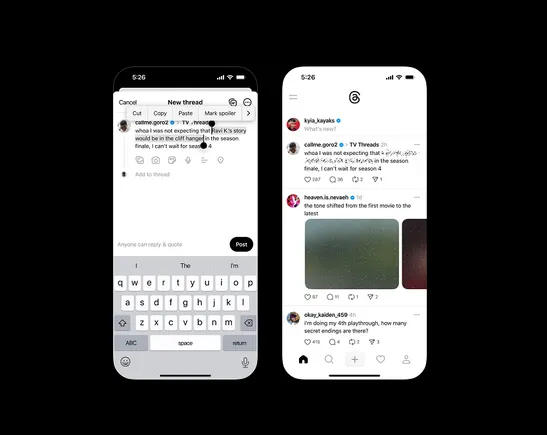The 22 Best Oscar-winning Movies on Netflix Right Now
The Academy isn't perfect, but sometimes they award movies that are truly worthy—or at least interesting.


Credit: Everything Everywhere All at Once/A24
The Academy Awards aren't everything. Sometimes winning movies truly represent the best films of their years; sometimes they reflect a zeitgeist that winds up looking weird in later years; sometimes they're just completely inexplicable.
But let's focus on the times the Academy has awarded movies that are actually pretty good, or, at least, reflect their eras enough to be interesting. Here are some of the best award winners currently streaming on Netflix.
Everything Everywhere All at Once (2022)
This groundbreaking and absurd comedy-drama received the lion's share of the love at the Oscars last year by blending a soulful and genuinely moving premise with some of the most wonderfully silly moments you're likely to find in a major motion picture. It also served as a much-needed corrective to a movie industry that's deeply self-serious, and also stiflingly blockbuster focused—give me a Marvel movie where a character travels the multiverse by leaping onto a butt plug, and I'll start paying attention again, I swear. The performances here are uniformly great, with special love going to mother Michelle Yeoh and the wonderful Ke Huy Quan.
Oscars for: Best Picture, Best Director (Daniel Kwan and Daniel Scheinert), Best Actress (Michelle Yeoh), Best Supporting Actor (Ke Huy Quan), Best Supporting Actress (Jamie Lee Curtis), Best Original Screenplay (Daniel Kwan and Daniel Scheinert), Best Film Editing (Paul Rogers)
All Quiet on the Western Front (2022)
A new adaptation of the 1929 anti-war novel from Erich Maria Remarque, this new version didn't take home Best Picture nor Best Director as the original 1930 version did, but still, All Quiet wound up being the second-most awarded film on Oscar night 2023, behind Best Picture winner Everything Everywhere All at Once. If it doesn't have quite the impact of the earlier adaptation, it's still a powerful film about the futility of war, set amid the trenches of World War I.
Oscars for: Best International Feature (Germany), Best Original Score (Volker Bertelmann), Best Production Design (Christian M. Goldbeck and Ernestine Hipper), Best Cinematography (James Friend)
My Octopus Teacher (2020)
Filmmaker Craig Foster spent a year forming a relationship with a wild common octopus in a South African kelp forest, transferring some of the lessons learned to his relationship with his own son. If Foster could form a bond with such an alien intelligence in its own natural (and naturally dangerous) environment, surely there's hope for humanity? Maybe?
Oscar for: Best Documentary Feature
Ma Rainey's Black Bottom (2020)
One sweaty, blues-filled afternoon in the Chicago of 1927, the great Ma Rainey (Viola Davis) shows up at the studio to make a new album. She's been contracted by white promoters, and she's fully aware that their deference to her is entirely dependent on her bankability as a singer. Over the course of the session, tensions rise and conflicts erupt, particularly between Ma Rainey and Chadwick Boseman's Levee Green. Davis earned a Best Actress nomination, and is so good that she's practically channeling the take-no-shit blues legend, while Chadwick Boseman was seen as a near-lock for a posthumous Best Actor award. Unfortunately, the Academy's notorious stinginess when it comes to Black acting seems to have won out—there's been exactly one Black Best Actress winner in 95 years of awards (Halle Berry), and only five Black acting winners overall.
Oscars for: Best Costume Design (Ann Roth), Best Makeup and Hairstyling (Sergio López-Rivera, Mia Neal and Jamika Wilson)
Jurassic Park (1993)
Perhaps not surprisingly, all of Jurassic Park's Oscar nominations and wins were in technical categories. No question that the movie is a technical marvel, with dinosaur effects that hold up shockingly well 30 years later. It's more than an effects film, though, and time has shown it to be one of Steven Spielberg's most enduring films, even if that endurance means that we're subject to sequels that have more-or-less worn out their welcomes. This one, though? Pure cinematic magic and a great time at the movies or, in our case, in front of the TV.
Oscars for: Best Sound Effects Editing (Gary Rydstrom and Richard Hymns), Best Sound (Gary Summers, Gary Rydstrom, Shawn Murphy and Ron Judkins), Best Visual Effects (Dennis Muren, Stan Winston, Phil Tippett and Michael Lantieri)
RRR (2022)
It's wild that RRR wasn't nominated in more categories, given its epic scope, sharp commentary, and crowd-pleasing style—but taking home India's first Original Song Oscar was no small feat either, especially given that the competition included numbers from the likes of Rihanna and Lady Gaga. The movie itself is a blockbuster done right, with brilliantly choreographed action sequences and rousing musical numbers buttressing a strong "f*ck colonialism" message. Hopefully Hollywood was taking notes.
Oscars for: Best Original Song ("Naatu Naatu")
Phantom Thread (2017)
One of the Academy's favorite directors (Paul Thomas Anderson) teamed with one of its favorite actors (Daniel Day-Lewis) for this historical drama set in 1950s London. The only surprise is, perhaps, that it received just one award, though it was nominated for several others, including Best Picture.
Oscars for: Best Costume Design (Mark Bridges)
The Power of the Dog (2021)
Like Brokeback Mountain, much of the press around Jane Campion's film had to do with its queer themes (gay cowboys? what's next!?), but its power lies in its deliberate, unhurried direction from Campion (a rarity these days), and also in its beautiful cinematography. Benedict Cumberbatch stars as one of two very different brothers, whose tenuous peace is shattered by the arrival of newcomers at their Montana ranch circa 1925.
Oscar for: Best Director (Jane Campion)
Period. End of Sentence. (2018)
The short (around 25 minutes) film follows a group of women in the Indian village of Kathikera, about 50 miles from Delhi, who work to overcome centuries of shame associated with menstruation. Learning that sanitary pads can be made with local materials, local women start a factory to manufacture and sell their own pads, starting a quiet but needed revolution in menstrual health.
Oscar for: Best Documentary Short Subject
The Last Days (1998)
In the last year of World War II and the Holocaust, the Nazis in occupied Hungary accelerated their program of deportation and extermination, even at the cost of war strategy. This documentary follows five survivors—and naturalized American citizens—traveling back to the camps they narrowly escaped.
Oscar for: Best Documentary Feature
The White Helmets (2016)
It's easy to lose sight of documentaries dealing with war and crisis amid the many of that style that have received Oscar nominations and wins, but there are standouts even in that very particular crowd. The White Helmets documents the story of the Syrian Civil Defense, an all-volunteer group of Syrians who perform search and rescue operations in response to bombings. The real draw of this (relatively) short film is in the interludes with volunteers discussing their everyday lives, before and during the war; those moments make clear the cost of the ongoing conflict. Though seven years old, the Syrian Civil War continues, tragically, as does the work of the SCD.
Oscar for: Best Documentary (Short Subject)
American Factory (2019)
The first film from Barack and Michelle Obama’s production company, Higher Ground Productions, goes and wins an Oscar. The film looks at an abandoned GM plant in Ohio purchased by a Chinese billionaire for his company, glass manufacturer Fuyao. The plant came to employ 2,000 American workers, but the complicated dynamic between the Chinese leadership and working-class American employers quickly points to potentially insurmountable problems. The movie takes a fly-on-the-wall approach, without any narrative beyond what we’re seeing and hearing inside the factory itself; there’s no overriding sense that there are heroes or villains here—just a lot of people trying to figure it all out.
Oscar for: Best Documentary Feature
Apollo 13 (1995)
Ron Howard's all-star astronaut docudrama is not only a better film than the one that won Best Picture in its year (Braveheart), it's also a better picture than the one the director took home the Oscar for (A Beautiful Mind). Simultaneously heart-stopping and subdued, the true story of the aborted moon mission generates tension without going overboard on the histrionics.
Oscars for: Best Film Editing (Mike Hill and Daniel Hanley), Best Sound (Rick Dior, Steve Pederson, Scott Millan and David MacMillan)
Gravity (2013)
Alfonso Cuarón has proven himself across multiple genres, with movies like Great Expectations, Children of Men, and Roma, so it's not entirely surprising that the director could pull off this big-budget near-Earth-orbit spectacle, but it's nevertheless an impressive feat, and one that earned a Best Picture nomination. A rarity, even for this type of elevated, smart science fiction. It did earn Cuarón his first of two (so far) directing Oscars.
Oscars for: Best Director (Alfonso Cuarón), Best Cinematography (Emmanuel Lubezki), Best Film Editing (Alfonso Cuarón and Mark Sanger), Best Original Score (Steven Price), Best Sound Editing (Glenn Freemantle), Best Sound Mixing (Skip Lievsay, Niv Adiri, Christopher Benstead and Chris Munro), Best Visual Effects (Tim Webber, Chris Lawrence, David Shirk and Neil Corbould)
The Sting (1973)
Very much the kind of movie they don't make anymore, and not merely because it's a depression-era period piece. George Roy Hill, who had directed Butch Cassidy and the Sundance Kid just a few years earlier, reunited Paul Newman and Robert Redford in a similarly good-natured caper film. The two play a couple of con men with an elaborate scheme to get revenge on the crime boss who murdered their friend. The period details are as meticulously crafted as the movie's central scheme, and it's ultimately an all-time great crowd-pleaser.
Oscars for: Best Picture, Best Director (George Roy Hill), Best Original Screenplay (David S. Ward), Best Art Direction (Henry Bumstead and James W. Payne), Best Costume Design (Edith Head), Best Film Editing (William Reynolds) Best Scoring (Marvin Hamlisch)
L.A. Confidential (1997)
At what becomes known as a “Bloody Christmas” shindig, based on real events, a bunch of LAPD officers get drunk and beat up several (mostly Mexican-American) prisoners—the kind of thing that could definitely only happen in the past and that clearly has no present day relevance whatsoever. Curtis Hanson's new-noir crime drama is one of the best examples of the form, and remains a gold standard for its dark-as-night style to this day.
Oscars for: Best Supporting Actress (Kim Basinger), Best Screenplay – Adapted (Brian Helgeland and Curtis Hanson)
Alice Doesn't Live Here Anymore (1974)
Martin Scorsese's name isn't exactly synonymous with heartfelt romantic comedies, but one of his earliest films is a stellar example of that genre, as well as being a superior film with a woman in the lead—something he's also not entirely known for. Ellen Burstyn plays a small-town widow who hits the road with her preteen son hoping to live out her dream of making a career out of singing, and along the way she gets waylaid working as a diner waitress in Arizona, where she meets a local rancher (Kris Kristofferson). Surprisingly funny despite some dark subject matter (including domestic abuse), it's a far richer film that its eventual sitcom offshoot Alice would have you believe.
Oscar for: Best Actress (Ellen Burstyn)
Silver Linings Playbook (2012)
Bradley Cooper and Jennifer Lawrence meet cute over their shared struggles with mental illness in this critically lauded romantic comedy/drama from director David O. Russell, (based on the bestselling novel by Matthew Quick). The characters here are far more messed up (or at least, far more upfront about being messed up) than many a film's romantic protagonists, and it's hard not to root for them to get together, even as you realize it'll probably be a disaster. The movie picked up a bunch of major nominations, with the sole prize going to Jennifer Lawrence.
Oscar for: Best Actress (Jennifer Lawrence)
Whiplash (2014)
Miles Teller plays Andrew Neiman, an ambitious and talented jazz musician in his first year at the prestigious Shaffer Conservatory in New York City. He’s come to the school with big dreams, and quickly gets noticed by the conductor of the conservatory’s studio band, Terence Fletcher (a terrifying J. K. Simmons). Fletcher is obsessive and cruel, which only feeds Neiman’s overwhelming desire to succeed.
Oscars for: Best Supporting Actor (J. K. Simmons), Best Film Editing (Tom Cross), Best Sound Mixing (Craig Mann, Ben Wilkins, and Thomas Curley)
Minari (2020)
A story of cultural assimilation in America of the 1980s, Minari is an intricate, beautifully told story full of impressive performances. Nothing here is excessively dramatic nor overblown, giving the whole narrative of a Korean immigrant family an uncommon verisimilitude. Youn Yuh-jung is a standout as grandmother Soon-ja, and charmed Academy Awards audiences with a memorable, gracious speech that began with her talking about how excited she was to meet Brad Pitt.
Oscar for: Best Supporting Actress (Youn Yuh-jung)
Mank (2020)
David Fincher's film about screenwriter Herman J. Mankiewicz (Gary Oldman) and the development of Citizen Kane is impressively dramatic, and even occasionally harrowing. It also did a bit better at Oscar time than the movie whose making it dramatizes: Kane received nine nominations and one win, while Mank picked up 10 nominations and won two of them.
Oscars for: Best Cinematography (Erik Messerschmidt), Best Production Design (Donald Graham Burt and Jan Pascale)
If Anything Happens I Love You (2020)
The very short (under 15 minutes) film, with a fairly simple animation style, manages to generate more emotion than many films many times its length. The movie follows two parents, grieving the death of their daughter in a school shooting, as they find themselves growing apart in the aftermath.
Oscar for: Best Animated Short Film

 Konoly
Konoly 
































